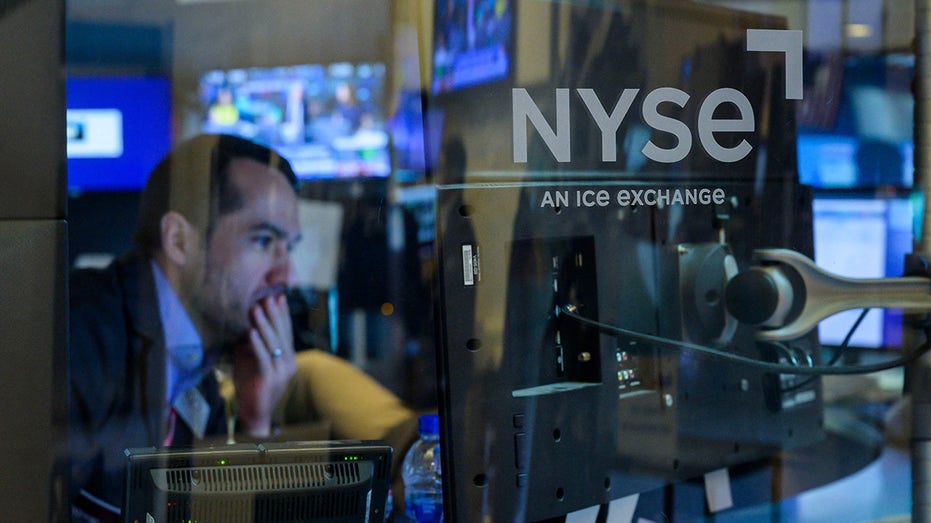October's record of market crashes makes it most feared month on financial calendar: 'October effect'
October of 2022 could cause the month to live of to its reputation
Larry Kudlow: Biden likes to ridicule the stock market
FOX Business host Larry Kudlow shreds President Joe Biden's economic policies ahead of the midterm elections on 'Kudlow.'
The month of October has become legend among those who follow the market closely, with a history of crashes that have become known as the "October effect" often striking fear that a downturn is on the horizon when autumn weather begins to roll in.
"The October effect is basically this idea that the market tends to have a bad month routinely in October," EJ Antoni, a research fellow for Regional Economics in the Center for Data Analysis at The Heritage Foundation, told Fox News Digital.
But whether the evidence backs up the idea October should be the most feared month on the financial calendar is a disputed topic. While the month has seen legendary crashes such as the Panic of 1907, Black Tuesday, Black Thursday and Black Monday in 1929, and Black Monday in 1987, the overall data points to October being a month just like any other.
"When you actually go back and look at the data, you find that there's really not much evidence to support" October being a routinely bad month, Antoni said.
STUART VARNEY: DEMOCRATS WILL HAVE A HARD TIME BLAMING TRUMP FOR AMERICA'S WEALTH DESTRUCTION

American flags hang on the New York Stock Exchange. (AP Photo/Mary Altaffer / AP Images)
According to an analysis of the month by LPL Financial, October has historically been the most volatile month for markets during the year, seeing the most swings of greater than 1% in either direction. But October has also seen more bear markets end than begin while September has produced more down markets without earning a nickname.
The overall data suggest that while October has gotten unlucky with its history of crashes, that may just be the result of bad luck for the month.
"It's amazing how many horrible declines in the Dow happened to happen in October," Antoni said. "In my opinion, these things are more coincidence than anything else. If you look at the events that caused the severe monetary contractions in previous panics, they had nothing to do with the calendar."
Antoni pointed out that October's bad reputation may have originated even earlier than the 1907 crash, pointing to the credit crunches of the agricultural economy of the 19th century. Back then, an economy centered around farming had predictable cycles that oftentimes came to a head in October.

A trader works during the opening bell at the New York Stock Exchange on Wall Street in New York City on Aug. 16, 2022. Wall Street stocks were mostly lower early Tuesday following lackluster housing data and as Walmart results highlighted how inflat (Photo by ANGELA WEISS/AFP via Getty Images / Getty Images)
RETIREMENT ACCOUNTS TAKE HIT WITH INFLATION, BUT INVESTORS STAY THE COURSE
"Farmers all need loans at the same time to buy seeds, to buy fertilizer, for their crops," Antonio said, adding that afterward, the crops were "all coming to market at the same time."
"Because the economy was having these system-wide shocks … those shocks were in fact seasoning and in my opinion, part of where the phycology of the October effect comes from," he said.
However, Antoni also believes that October could live up to some of its reputation in 2022.
"This year looks like it may actually live up to the reputation whether the reputation is deserved or not," Antoni said. "Whether we're talking about the American or the global economy, there's not much going on that indicates any kind of increase in growth."

President Joe Biden. (AP Photo/Alex Brandon / AP Newsroom)
CLICK HERE TO READ MORE ON FOX BUSINESS
While Antoni believes the U.S. economy could slightly grow for the third quarter this year, October may be the start of a bad economic stretch.
"I don't see any growth on the Horizon," he said. "One of the key drivers right now behind our at least anemic economic growth is our exports. Well, our exports are about to start declining pretty fast because the dollar is getting so strong relative to other currencies. And when you have a strong dollar, it makes it more expensive for foreigners to buy our products, our exports. So that's going to decrease exports which also decreases GDP [gross domestic product]."




















